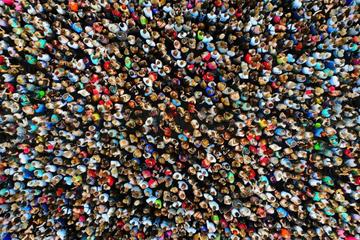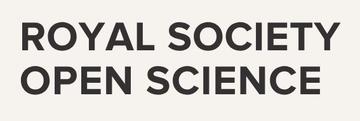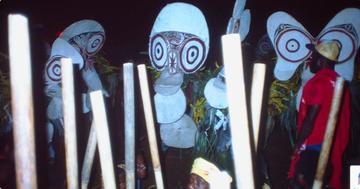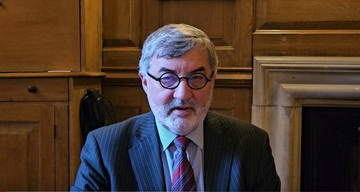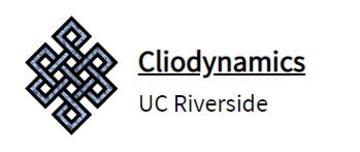The Global Cohesion Lab
The Global Cohesion Lab
The goal of the Global Cohesion Lab is to find out how to make humanity our tribe. We analyse how global identity and global cohesion can be strengthened to motivate prosocial action on a global scale. Human group alignments are typically parochial, prioritizing regional, national, or local interests over global ones. While group identities with more narrowly defined groups are important, global identity might be a powerful prerequisite for tackling global problems such as climate change, biodiversity loss, conflict, and extreme poverty. The need for shared identities that transcend national, religious, and ethnic boundaries is especially salient in the light of the currently rising geopolitical tensions all around the world and we believe that the question whether we can build strong forms of global identity is of central importance to the future of our species.


Key Questions
Learn more about our approaches to the key questions guiding this research.
Our lab group has focused on the power of perceptions of globally shared transformative life experiences and perceptions that we all belong to a great human family in a real biological sense through common ancestors. Shared transformative experiences and shared biological essence are known in psychology and anthropology as the two pathways to identity fusion, a particularly strong form of social cohesion that motivates strong forms of progroup action. We have generated evidence that global sharedness of transformative life experiences and family ties can strengthen social bonds and prosocial action on a global scale. We have started to analyse the power of appealing to globally shared life experiences and globally shared biological kinship in speeches to motivate climate action and to mitigate tensions in conflicts. We aim to explore the power of these two pathways to fusion with humanity at large to tackle other global problems as well.
Institutions have immense power to shape social identities. Our lab group explores what institutions can do and how they can be reformed to foster bonding with humanity and global cohesion. One area that has potential to strengthen global identity are education systems. Teaching perspective taking skills, sharpening perceptions for the global sharedness of transformative life experiences, teaching global history and global genetic similarities, and promoting intercultural exchange might foster global cohesion in the next generations and we aim to find out which education practises are most effective at fostering global cohesion. A second area that might have potential for contributing to global cohesion is participation in global institutions which is for instance related to the idea of a UN Parliamentary Assembly (UNPA). We aim to analyse whether these and other institutional reforms can contribute to global identity and global cohesion.
Leaders and movements who seek to foster global cohesion and cooperation on the global scale are currently losing ground in many places against those who champion an aggressive us-against-them logic. Our lab aims to contribute to the question how proponents of global cohesion and unity can better organize themselves and rally support more effectively. How can they win back trust and support of those who seek stability and comfort in us-against-them narratives? How can they communicate the vision of new forms of global identity in the most appealing manner? How can leaders inspire other leaders to join their efforts to build more global cohesion? Are there new and more effective forms how leaders who want to build global cohesion can organise themselves? Our lab works directly with leaders to learn from their practical wisdom on these questions stimulating a mutual learning process between science and practice.
Events
Outputs
-
Reinhardt L., Whitehouse H. (2025). Appeals to shared suffering in the context of the Israeli-Palestinian conflict. PLoS One 20(10): e0332197. -
Whitehouse, H., Lord Alderdice, J., Alvarado Quesada, C., Gluckman, P., El Haite, H., Reinhardt, L. (2025) Solving Global Problems Requires Global Cohesion. New England Journal of Public Policy, Volume 37, Issue 1. -
Demiroglu, S., White, C., Xygalatas, D., Morales, D., Ainsworth, A., Whitehouse, H. (2025) Shared suffering predicts prosocial commitment among Turkish earthquake survivors. Nature, Scientific Reports, 15 (8543). -
Reinhardt, L., & Whitehouse, H. (2025) What kinds of speeches motivate climate action?, Royal Society Open Science, 12(4). -
Krakowski, K., Kyrkopoulou, E., Reinhardt, L., & Sambanis, N. (2024) Good Citizenship and Native-Immigrant Conflict: Experimental Evidence From Europe, Comparative Political Studies, 0(0). -
Whitehouse, H. & Tanguay, J. (2024) Anthropology in Action in Vanuatu: Troubleshooting Disaster Relief in the Wake of Tropical Cyclones Judy and Kevin. Anthropology in Action, 1-12.
-
Reinhardt, L., Whitehouse, H. (2024) Why Care for Humanity?, Royal Society Open Science, 11(4). -
Buhrmester, M., Cowan, M., Whitehouse, H. (2022) What Motivates Barrier-Crossing Leadership?, New England Journal of Public Policy, 34(2).
-
Curry, O.S., Mullins, D.A., Whitehouse, H. (2019) Is It Good to Cooperate? Testing the Theory of Morality-as-Cooperation in 60 Societies, Current Anthropology,
60(1):47-69. -
Buhrmester, M. et al. (2018) How Moments Become Movements: Shared Outrage, Group Cohesion, and the Lion That Went Viral, Frontiers in Ecology and Evolution,
6(54). -
Whitehouse, H. (2013) Three Wishes for the World, Cliodynamics, 4(2).
-
Atkinson, Q.D., Whitehouse, H. (2011) The Cultural Morphospace of Ritual Form: Examining Modes of Religiosity Cross-culturally, Evolution and Human Behaviour,
32:50-62.
-
Whitehouse, H. (2025) Humanity's ancient tribalism is causing its modern problems, iai news -
Whitehouse, H. (2025) Psychology Can Be Harnessed to Combat Violent Extremism, Wired -
Feldhaus, C., Reinhardt, L. & Sutter, M. (2024) Trump Ante Portas: Political Polarization Undermines Rule-Following Behavior, CESifo Working Paper, No. 11485.
-
Whitehouse, H. (2024) How Big Is Your Family?, Nautilus -
Reinhardt, L., Whitehouse, H. (2024) Can Appeals to Shared Suffering Provide a Recipe for Peace?, SSRN
-
Whitehouse, H. (2024) Why humanity’s survival may depend on us becoming a tribe of billions, New Scientist
-
Whitehouse, H. (2024) The Lion Who Would Save the World, Nautilus
-
Whitehouse, H. (2024) Why we get the leaders we do, iai news
-
A recipe for Singapore: A dash of religion and concern for the planet
The Strait Times
19 July 2025 -
Singapore at the crossroads: Maintaining cohesion in a changing world
The Strait Times
26 June 2025
-
On the Evolutionary Origins of the Modern World - A Conversation with Professor Harvey Whitehouse
Thought Economics
8 June 2025 -
Rallying through the rubble – earthquake brings people in Turkey and Syria together
University of Oxford
24 March 2025 -
Warum es entscheidend ist, wer eine politische Maßnahme vorschlägt (Why it matters who proposes a policy measure)
Frankfurter Allgemeine
01 January 2025 -
Harvey Whitehouse provides quote of the day in Nature
Nature
13 December 2024 -
Political polarization undermines individuals’ rule-following behavior
IZA Newsroom
28 November 2024
-
How We Tend to Conform, Believe, and Belong, and How these Biases Can Save Our World.
Harvard University Press
27 September 2024
-
Harvey Whitehouse's research on identity fusion and global cohesion
Falling Walls Foundation
21 August 2024 -
Could a dead lion save humanity from climate change, war and gang crime?
New Zealand Listener
10 June 2024 -
La grande famille humaine
Québec Science
16 May 2024 -
The power of shared humanity: Uniting for global progress
The Week
18 April 2024 -
Study reveals how humanity could unite to address global challenges
University of Oxford
17 April 2024 -
Study reveals how humanity could unite to address global challenges
PHYSORG
17 April 2024
Lord John Alderdice | On the unifying power of shared suffering (featured in our article “Can Appeals to Shared Suffering Provide a Recipe for Peace?”):
A.J. Jacobs | The world's largest family reunion...we're all invited! (ft. in our article “Why Care for Humanity?”):
Minister Ralph Regenvanu | On global family ties and the fight against climate change (ft. in one of our studies in progress):
↵
Harvey Whitehouse | S. Rajaratnam School of International Studies Seminar on “Exploring the Bonds That Unite Us” | NTU Singapore
↵
Harvey Whitehouse | Tapestry of Cohesion Episode 3 | How Rituals Shape Our World: From Faith to Football
Harvey Whitehouse | Episode #200: Dr Harvey Whitehouse | A Song Called Life
Harvey Whitehouse | Part 1: Nationalism - Does our biology facilitate out Global Disorder? | The Disorder Podcast
Harvey Whitehouse | Part 2: Nationalism - Can it be reclaimed for Order? | The Disorder Podcast
Lukas Reinhardt | The great human family is not a naive dream | Deutschlandfunk Nova



